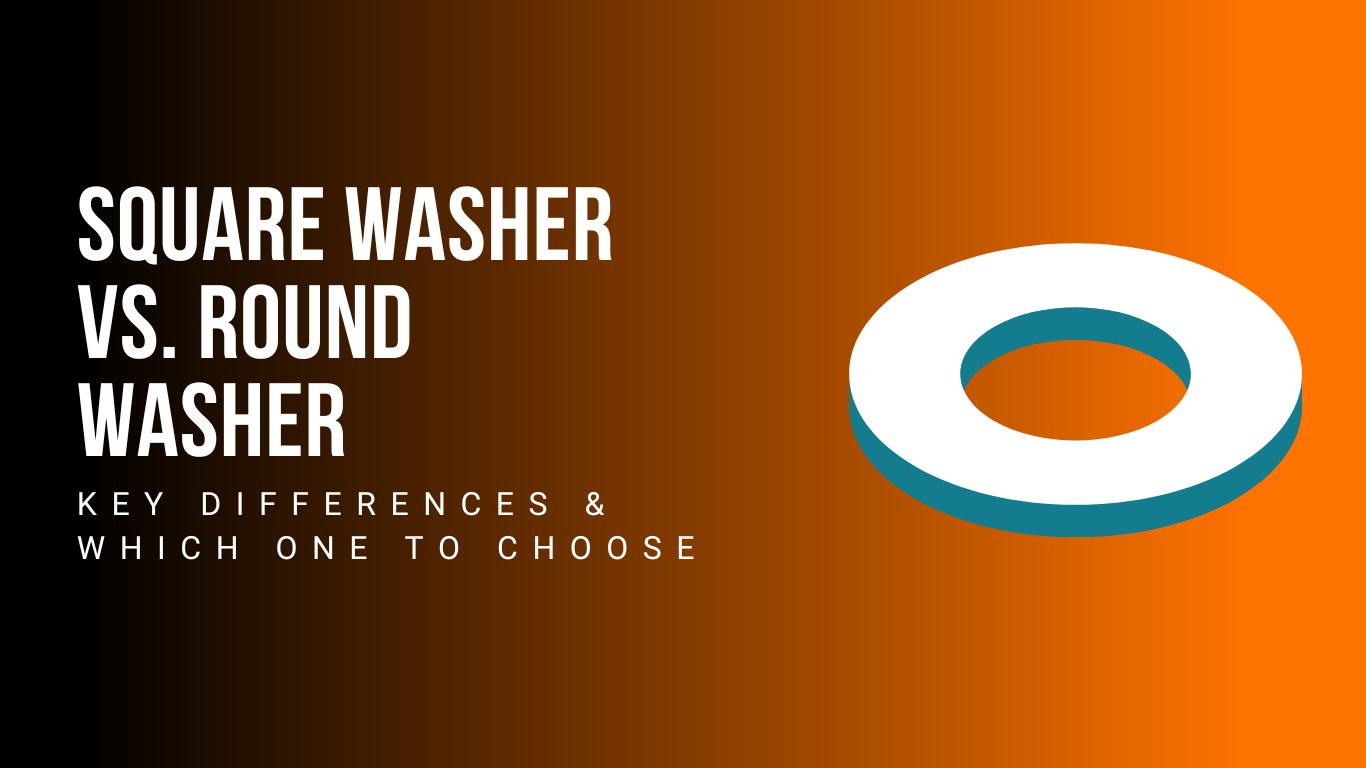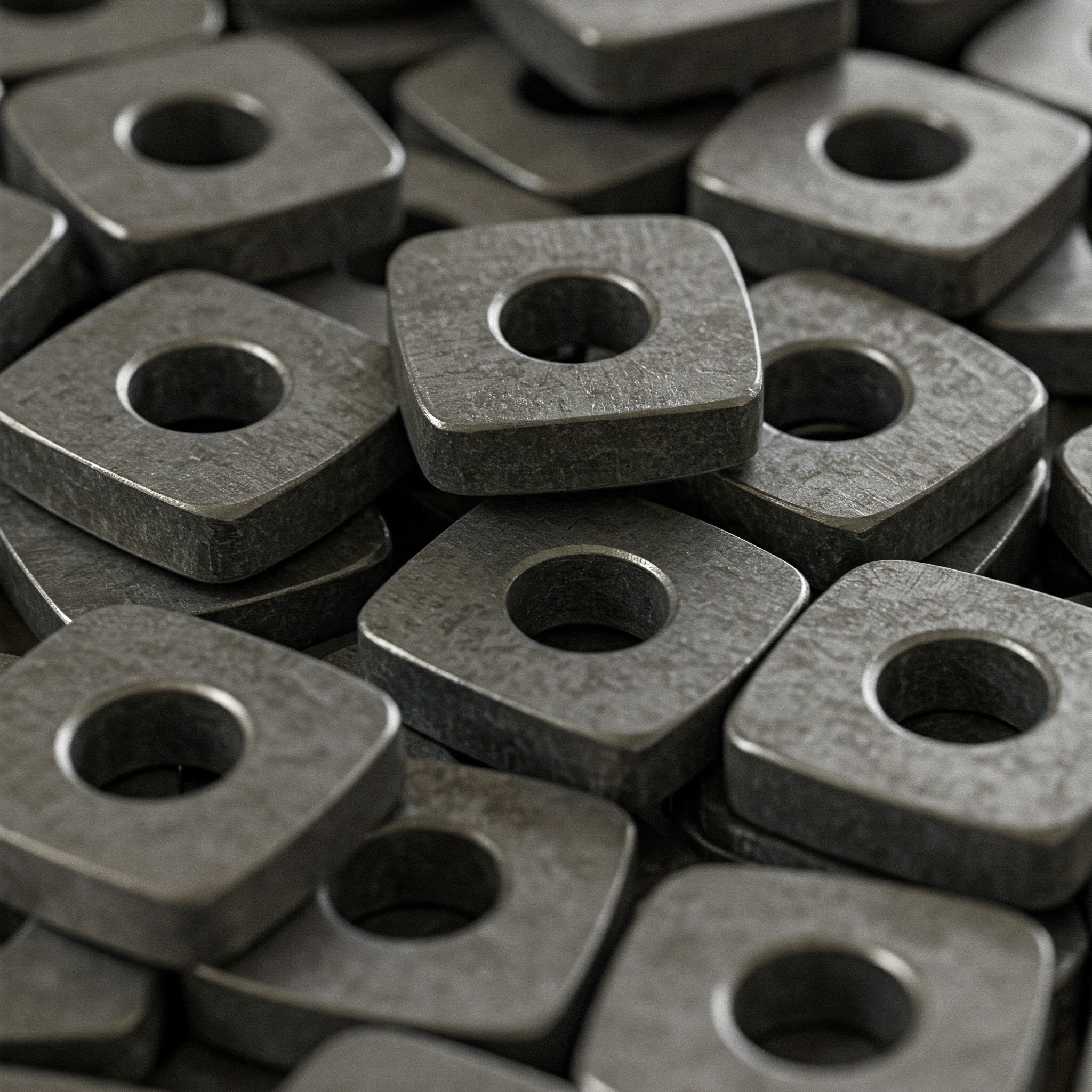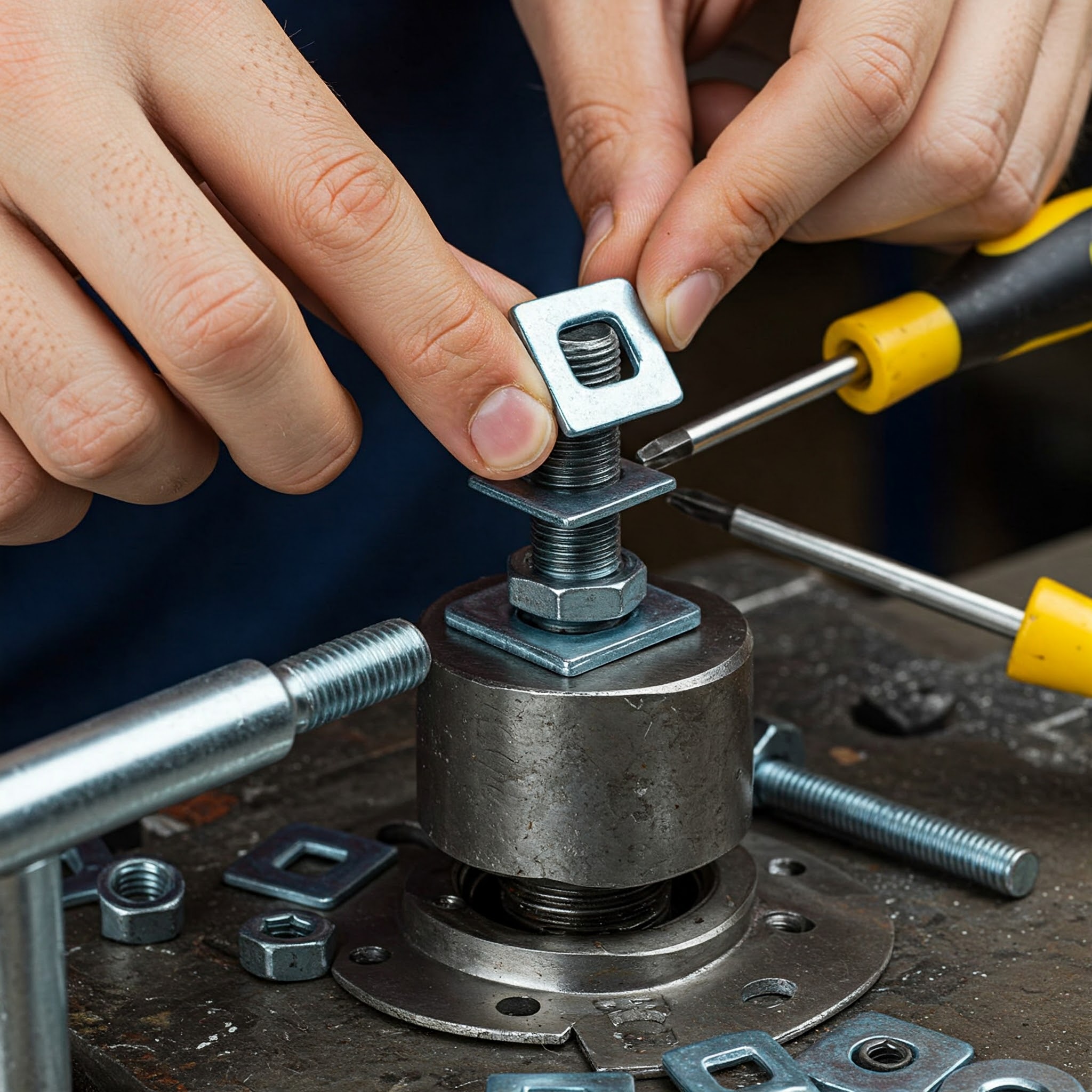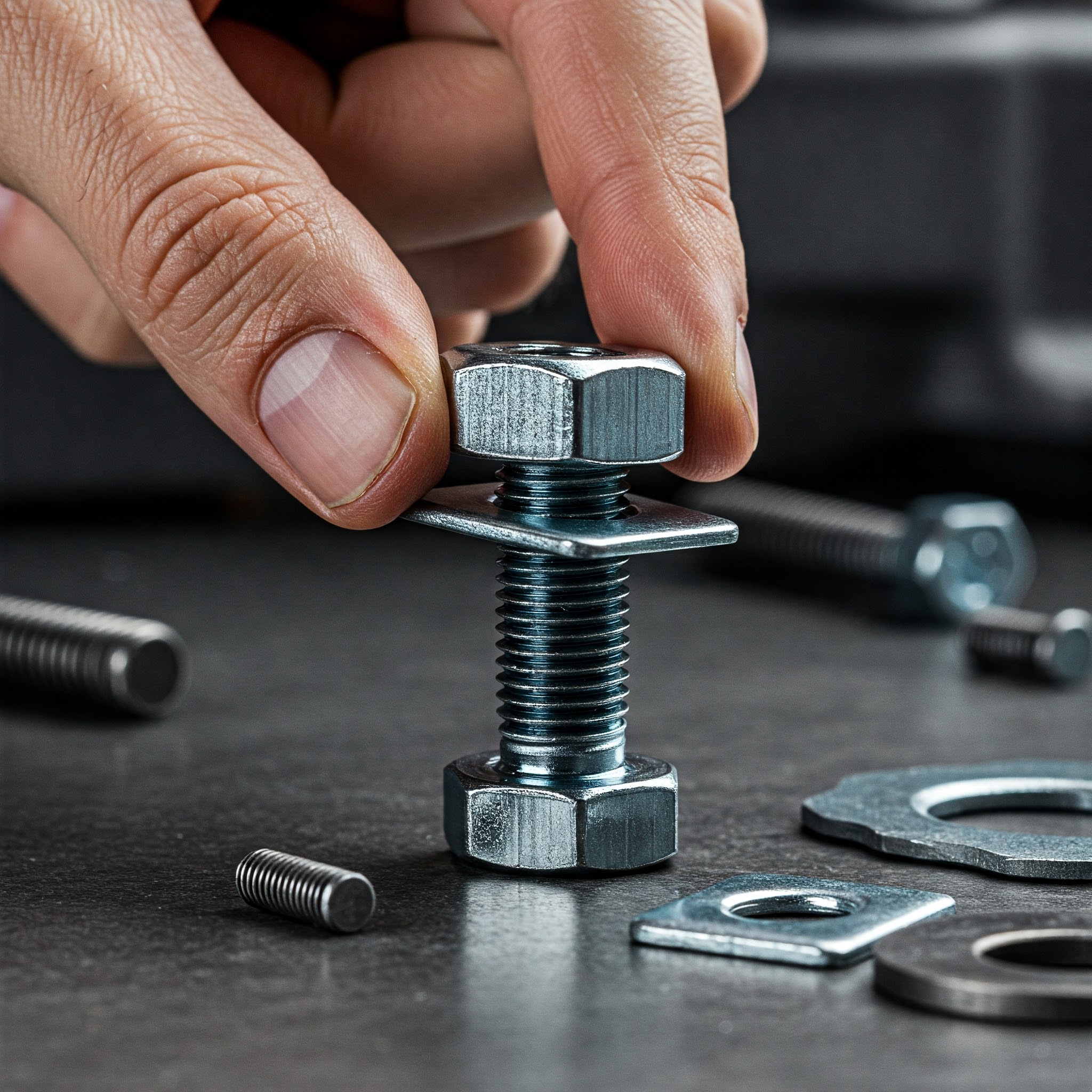
When you're working on a project that requires fastening, one of the first things you'll encounter is the choice between different types of washers. Two of the most common options are square washers and round washers. But how do you know which one to use? In this article, I’ll break down the key differences between square washers and round washers, how they each function, and which one is best suited for your needs. By the end, you’ll be able to make a more informed decision and choose the right washer for your project. Whether you're choosing a machined washer, industrial washer, or any other washer type, this guide will help you find the best fit.
A square washer is a flat, square-shaped piece of metal used under the head of a fastener, like a bolt or screw. The purpose of the washer is to distribute the load more evenly across the surface it’s attached to. Since the sides of the square are flat and more substantial than a round washer, square washers are particularly useful in applications where the load distribution needs to be more efficient and stable. Square washers are often used in construction, woodworking, and heavy-duty machinery. Their unique shape helps resist loosening and provides a more secure connection, especially in situations where there’s high load or pressure on the fastener. This makes them a great choice for industrial washers that need to perform in tough conditions.

A round washer (also known as a flat washer) is the most common type of washer. It has a round shape with a hole in the center that fits over a bolt or screw. Round washers are typically used to distribute the load of the fastener more evenly, preventing the surface from getting damaged by pressure or friction. The round shape allows them to distribute force in all directions, making them highly versatile. You’ll find round washers in a variety of applications, from automotive to home improvement. They are essential in securing bolts or screws without damaging the materials being fastened. In some cases, you may also want to use other types of washers, like wedge lock washers or spring lock washers, depending on the specific demands of your project.
Understanding the key differences between square washers and round washers will help you decide which one to use for your specific project. Let’s take a look at how they compare across several important factors:
Both square washers and round washers can be made from various materials, including stainless steel, carbon steel, and more. However, square washers are often found in more industrial applications where the material strength and load-bearing capabilities are critical.

While square washers have their advantages , there are plenty of situations where round washers are the go-to choice. Here’s when you should choose a round washer:
Choosing the right washer for your project doesn’t have to be complicated. Here are some factors to consider when deciding between square washers and round washers:

Choosing between a square washer and a round washer ultimately depends on your specific application. While round washers are versatile and suitable for general-use applications, square washers excel in heavy-duty projects where load distribution, vibration resistance, and space constraints are key factors. By considering the nature of your project—whether it’s machinery, construction, or automotive—you can make a more informed decision about which type of washer will work best for your needs. For more specialized needs, such as vibration resistance or higher load-bearing, wedge lock washers or spring lock washers may be the ideal solutions. Now that you know the key differences between square washers and round washers, you’ll be able to choose the right one to ensure a secure, long-lasting fastening system in your projects.
Our range of shim washers includes machined washers , industrial washers , ogee washers , tab washers , conical washers , sealing washers , and more. Designed for various applications, they ensure precise alignment, secure fastening, and durability in industries like aerospace, automotive, construction, and manufacturing. Whether you need industrial washers for heavy machinery, sealing washers for fluid systems, or ogee, tab, and conical washers for specialized uses, our selection guarantees optimal performance.



